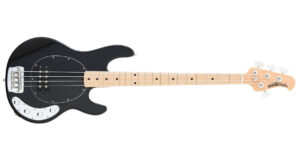Takiye Pe Sar (Amanda Sodhi with Drishyam Play)
There is something irreplaceable about universal experiences. No matter how often you talk about love, loss and personal redemption, it remains relatable. It is not possible to underplay their significance, which makes them entirely safe bets to sing about.
That Amanda Sodhi’s voice is a charm is an established fact. What makes this song stick is how familiar it feels, even on your first listen. It expresses private rumination, dwelling on the loss of love (the singer’s first heartbreak in the States) and a question that most people wouldn’t ask out loud.
Do you remember me?
The music, as the video thrives on pensive, borderline-meditative circles. There is very little embellishment; image and vocals take front stage. The video is especially pleasant, because it provides resolution while the song doesn’t. Moving on by virtue of a new friendship has been a well-explored concept, but this one manages to divulge a disarming closeness through video. Rising from the morass of bad memory is hard enough, but is is marvellously juxtaposed again the rarely-appreciated joys of female friendship. That, combined with serene vocal lines deserves more than a few minutes of applause.
Kaahe Re (Antariksh)
Jekyll and Hyde remains a classic for good reason. Duality is fundamental to human nature. If I can paraphrase F. Scott Fitzgerald, show me a man and I (rather, his therapist) will show you his deep-seated psychological conflict.
Kaahe Re works this cure truth with a far-too-frequent example. Security vs. passion. A man in a soul-crushing desk job va a man taking to the mountainous wilderness with a leather jacket and a guitar. The video is vivid, with surprising investment in detail. The cherry? A semi-blurred glimpse of a coffee mug with a post-it reading “Don’t sleep”.
The song pivots around simple conviction : go after joy. Despite all that stands in the way, not much else can provide a reason for life. Tonality weaves between ballad and eager, with clear classic rock underpinnings. It’s exhortation to abandon overthinking and just invest in your heart’s calling is an uncomplicated message, and certainly much needed in a world that gives you too many options that lead to the same kind of nowhere.
I wish I could Fly (Nine Lives)
This seems like a good month for music that emphasises oft-repeated messages in pleasant meanderings. Nine Lives takes to the common human desire for self-actualisation. Since people tend to say “I wish I could do what I want to” more frequently than they ask for food, it makes sense to craft a song’s central ethos out of this sentiment.
The song is upbeat and agreeable. CJ Charanjit R’s vocal texture is admirable, and makes the somewhat cliched lyrics sounds more welcoming. The video is similarly unsurprising, with images of children denoting, one assumes, a future more aligned with the heart’s desire. It’s a bit hard to reconcile words like “Is it so easy for you to forget me?” with shots of smiling children doing school activities that really makes no one smile (Seriously, what child gets this excited about ringing a temple bell?).
While the theme is not entirely cohesive, the song is arranged with enough simplicity that “catchy” is an adequate description. Additionally, it is easy enough to sing along to, and will probably be on playlists featured in drunk karaoke nights.
Never (Angad Katari)
(Disclaimer)Never was released nine months ago. In my infinite misfortune, I came across it only last week. Even if it is not protocol to review anything after such a time-lapse, I chose to make an exception because of what this song brought to me.
Now answer me this, is most good art borne out of sadness, misery and pain? If so, then what does it say about our ability to find joy? Does it mean that we do not turn joy to art as often as pain? Is it because joy needs no meaning, while the only way to accept pain is to elevate it?
Before you roll your eyes at my highly amateurish musings, let me defend myself by saying that these questions were engender by the song. Every time I played Never, I had new questions to grapple with.
Angad Katari understands melancholy. It wouldn’t be a stretch to imagine that he has lived with protracted sadness. The maudlin influence of youth, too, has played it’s role. Lamentation is washed with lyrics that resemble short, repressed breaths. The words are memories of an urgent anguish, rather than long hours of carefully curated woe.
Never Fell this way,
So lost and hurt to be the same,
Never fell this way,
So lost and hurt to be the same,
Coherence is minimally adhered to, and instruments fill in lyrical gaps. Sounds weave around themselves with an abandon made possible by grief, with Nawahineokala’i Linziloti’s cello emitting a siren song of plea and desolation.
Katari’s sound is decidedly, almost uncomfortably honest. It’s melodic superiority saves the listener from the inconvenience of introspection, unless that’s the kind of thing you seek actively. Whatever the intention, Never possesses a certain magnetism made possible by familiar feeling. It inspires connection, especially when you come to it by yourself.








